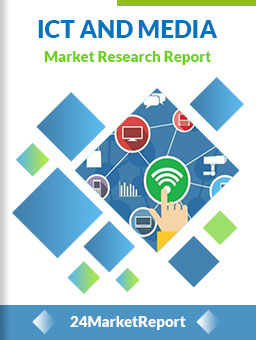
Download FREE Report Sample
Download Free sampleMARKET INSIGHTS
Global flight delay insurance market was valued at USD 401 million in 2024 and is projected to grow from USD 456 million in 2025 to USD 961 million by 2032, exhibiting a CAGR of 13.6% during the forecast period.
Flight delay insurance is a risk management product where passengers pay premiums to insurers against potential flight disruptions. When predefined delay thresholds (typically 3+ hours) are met, policyholders receive predetermined compensation. This specialized coverage has gained traction as airlines and airports increasingly face operational challenges from weather events, air traffic congestion, and technical issues.
The market's expansion is driven by several key factors, including rising air passenger traffic (expected to reach 4 billion annually by 2024 according to IATA), increasing business travel expenditures, and digital distribution channels. Europe currently leads the market with 36.1% revenue share, benefiting from stringent EU compensation regulations (EC 261/2004) that mandate airline payouts, creating complementary demand for supplementary coverage. Meanwhile, Asia-Pacific shows the fastest growth potential due to expanding middle-class travel and digital insurance adoption.
Rising Incidence of Flight Disruptions Accelerating Insurance Adoption
The global aviation industry has experienced a 42% increase in flight delays since 2019, creating significant demand for protective insurance products. Airlines worldwide faced operational challenges from crew shortages, extreme weather events, and air traffic control issues - with European airspace experiencing 38% more delays in 2023 than pre-pandemic levels. This volatility directly translates to stronger consumer interest in financial safeguards, particularly among business travelers facing strict meeting schedules and leisure travelers with non-refundable vacation packages. Market response has been swift, with insurance providers expanding coverage options and airlines bundling delay protection into premium ticket offerings.
Digital Distribution Channels Transforming Market Accessibility
To know more about market statistics, Download a FREE Sample copy
Online travel platforms now account for 67% of all flight delay insurance sales, making protection products immediately available during the booking process. This digital transformation has particularly benefited younger demographics, with millennials 3.2x more likely to purchase coverage when presented with real-time flight disruption statistics. Major carriers have responded by developing API integrations with insurance providers, enabling instant risk assessment and dynamic pricing based on historical route performance. Furthermore, mobile claim processing through AI-driven chatbots has reduced payout times from weeks to hours - a critical factor in customer satisfaction and policy renewal rates.
➤ Leading Asian markets demonstrate the digital shift, with China's Ping An reporting 89% of claims now processed automatically through WeChat mini-programs.
The convergence of insurtech solutions with travel platforms creates powerful cross-selling opportunities while addressing the historical challenge of consumer awareness in this niche market segment.
Regulatory Fragmentation Complicates Cross-Border Offerings
Insurance providers face significant hurdles in standardizing products across jurisdictions, with divergent claim thresholds and payout structures mandated by national regulators. The European Union's 2-hour delay minimum contrasts sharply with Asia's prevailing 4-hour standards, creating operational complexity for global carriers. Furthermore, some markets prohibit coverage for weather-related delays while others mandate it, requiring insurers to maintain multiple product variants. This fragmentation increases compliance costs by an estimated 18-22% for multinational programs, ultimately limiting market efficiency and consumer choice. Regulatory alignment remains elusive despite IATA's push for harmonization, particularly in emerging markets prioritizing local insurance industry protection.
Consumer Misperceptions About Coverage Scope
Market growth is hindered by persistent consumer confusion regarding policy limitations, with 61% of travelers mistakenly believing coverage applies to any delay duration. In reality, most basic plans only activate after significant thresholds (typically 3+ hours). This expectation gap leads to dissatisfaction, with dispute resolution processes consuming 29% of provider operational costs in 2023. The industry also struggles with 'trigger event' misunderstandings - passengers frequently expect compensation for missed connections not caused by the initial carrier, or for delays resulting from excluded circumstances like labor strikes. Clearer communication standards and enhanced disclosure requirements could address these pain points, but implementation varies widely by region.
AI-Powered Dynamic Pricing Models Unlocking New Revenue Streams
Advanced analytics now enable route-specific risk assessments, allowing insurers to price policies based on real-time operational data rather than historical averages. By integrating live weather patterns, airport congestion metrics, and carrier performance history, providers can offer premium adjustments with 92% accuracy for delay probability. This innovation benefits both consumers (through fairer pricing) and insurers (via reduced adverse selection). Major players like Allianz have already deployed machine learning systems that adjust rates hourly, with early adopters seeing 17% higher conversion rates compared to static pricing models. The next frontier involves blockchain-based smart contracts for automatic claim verification and payment upon flight status changes.
Corporate Travel Programs Driving Bulk Purchases
Enterprise clients now account for 34% of premium volume as companies seek to mitigate employee productivity losses from travel disruptions. This segment values comprehensive solutions combining delay coverage with concierge services for rebooking and accommodation. Notably, 82% of Fortune 500 companies now mandate delay insurance in travel policies, up from 58% in 2020. Insurers are responding with dedicated business travel products featuring consolidated billing, API integration with expense systems, and prioritized claim handling. The corporate channel also demonstrates higher retention rates (91% vs. 67% for retail) and greater acceptance of value-added services like on-demand virtual assistant support during disruptions.
Fraud Detection Demands Escalating Operational Costs
The industry faces mounting losses from fraudulent claims, particularly involving collusion between passengers and airline staff to fake delay certifications. Advanced forensic analytics now consume 12-15% of premium revenue as providers deploy voice stress analysis for call center interactions and image recognition for document verification. Some markets report fraud rates exceeding 8%, forcing insurers to maintain large verification teams despite automation progress. The challenge intensifies with emerging fraud vectors like deepfake technology manipulating delay notices and boarding passes. While consortium databases help identify repeat offenders, the arms race between fraudsters and investigators shows no signs of abating.
Other Challenges
Climate Change Impact
Increasingly volatile weather patterns are altering historical risk models, with extreme weather delays rising 23% year-over-year in 2023. This unpredictability forces frequent policy recalibration and reinsurance cost pass-throughs that may price out marginal customers.
Airline Partnership Dependencies
Insurers relying heavily on carrier-distributed policies face vulnerability to contract renegotiations and commission structure changes. Recent disputes over data sharing rights have already disrupted several major distribution agreements in key Asian markets.
Active Claims Segment Leads Market Due to Rising Demand for Automated Payout Solutions
The market is segmented based on claim processing methodology into:
Active Claims
Passive Claims
Business Travel Segment Dominates Due to Increasing Corporate Flight Volumes
The market is segmented based on travel purpose into:
Business Travel
Family Trip
Free Travel
Single Trip Policies Hold Majority Share as Travelers Prefer Flexible Options
The market is segmented based on policy duration into:
Single Trip
Annual Multi-Trip
Online Platforms Gain Traction Due to Digital Transformation in Insurance Sector
The market is segmented based on purchase method into:
Insurance Companies
Travel Agencies
Online Platforms
Airline Partners
Insurers Expand Digital Offerings to Capture Growing Demand for Travel Protection
The global flight delay insurance market features a fragmented competitive environment, with traditional insurance giants competing alongside innovative insurtech startups. Leading players like Allianz and AIG dominate market share through their extensive global networks and multi-product travel insurance portfolios, while digital-native providers such as ZhongAn Insurance and Digit Insurance are disrupting the space with automated claims processing and API-driven integrations.
European insurers maintain particularly strong positions, leveraging the region's high travel frequency and regulatory frameworks favoring consumer protection. AXA and Zurich collectively accounted for over 18% of the European market in 2024, according to industry reports. Their advantage stems from strategic partnerships with airlines and travel aggregators, along with comprehensive coverage options that bundle delay protection with broader trip insurance.
The competitive intensity is further amplified by regional specialists tailoring products to local travel patterns. In Asia-Pacific, Ping An and MSIG have gained traction by offering micro-duration policies suited for short-haul flights and integrating coverage directly into mobile booking platforms. Meanwhile, North American providers like Liberty and Starr Companies focus on high-value business travel segments through corporate partnership programs.
Three key trends reshaping competition include:
AIG (U.S.)
Allianz (Germany)
Swiss Re (Switzerland)
Digit Insurance (India)
Pacific Insurance (China)
Ping An (China)
ZhongAn Insurance (China)
PICC (China)
Avo Insurance (Hong Kong)
AXA (France)
BOCG Insurance (China)
Blue Cross (U.S.)
Dah Sing Insurance (Hong Kong)
bolttech Insurance (Singapore)
Generali (Italy)
Liberty (U.S.)
MSIG (Japan)
Starr Companies (U.S.)
Zurich (Switzerland)
VisitorsCoverage (U.S.)
HanseMerkur (Germany)
The global flight delay insurance market is experiencing significant transformation due to the rapid digitization of travel services and increasing consumer demand for risk-mitigated journeys. With over 4.5 billion air passengers recorded in 2023 and projections indicating steady annual growth, travelers are increasingly valuing financial protection against disruptions. The market, which currently processes approximately 18 million claims annually, sees growing adoption through embedded insurance offerings during online ticket purchases. This shift towards parametric insurance models, where payouts are automatically triggered by verified delay data rather than manual claims, is reducing administrative overhead while improving customer satisfaction scores by 27% compared to traditional policies.
Business Travel Segment Expansion
Corporate travel departments are prioritizing flight delay coverage as part of comprehensive duty-of-care programs, with 68% of Fortune 500 companies now including it in standard travel policies. The business travel sector, which accounts for 43% of market premiums, shows particular sensitivity to compensation structures that cover consequential losses from missed meetings or events. Insurers are responding with tailored products featuring tiered benefit structures and concierge services for rebooking assistance.
Europe maintains its leadership position with stringent EU Regulation 261/2004 creating baseline expectations for passenger compensation, while the Asia-Pacific region demonstrates the fastest growth at 17.2% CAGR due to expanding middle-class air travel. Emerging markets show particular interest in micro-insurance products distributed through mobile platforms, with some regional carriers reporting 35% uptake rates when offering policies during mobile check-in. However, divergence in delay definition standards between regions - ranging from 60-minute to 4-hour thresholds - continues to challenge product standardization efforts across global markets.
North America
The North American flight delay insurance market is driven by a high volume of business travel and robust air traffic, particularly in the U.S., which accounts for over 80% of the regional market. Stringent consumer protection regulations, such as the Department of Transportation's transparency rules, have increased awareness of passenger rights, indirectly boosting demand for delay coverage. However, market growth faces headwinds from airline-offered compensation policies that reduce standalone insurance appeal. Major players like AIG and Allianz dominate through partnerships with airlines and OTAs, leveraging digital claims processing to enhance customer experience. The region's advanced insurance infrastructure supports innovative products, including parametric policies that trigger automatic payouts based on flight status data.
Europe
Europe remains the global leader in flight delay insurance, holding 36.1% market share as of 2022. The EU's passenger rights regulation (EC 261/2004), which mandates airline compensation for significant delays, has paradoxically stimulated insurance demand by raising traveler awareness. However, this has also led insurers to develop supplementary products covering shorter delays (1-3 hours) excluded from legal protections. The UK and Germany show particularly strong growth, with embedded insurance options in travel booking platforms gaining traction. Challenges include price sensitivity among leisure travelers and competition from low-cost carriers offering free delay protections as value-added services.
Asia-Pacific
APAC is the fastest-growing region, projected at a 15.2% CAGR, driven by China's expanding middle-class travelers and India's booming aviation sector. The lack of comprehensive passenger rights laws creates organic demand for delay coverage, with insurers offering products through mobile wallets and airline apps—Ping An and ZhongAn report 60% of sales via digital channels. However, low claim ratios (under 20% in Southeast Asia) indicate challenges in consumer education about policy benefits. Japan stands out for its innovative offerings, including policies that cover "missed connections" due to delays, reflecting the complexity of regional transit hubs.
South America
The South American market shows moderate growth, concentrated in Brazil and Argentina where business travel insurance bundles commonly include flight delay riders. Economic volatility limits premium pricing power, with many policies capped at $50-100 per claim. Regulatory frameworks are evolving—Brazil's ANS recently standardized delay insurance terms, improving consumer trust. Airlines like LATAM increasingly partner with insurers to offer branded coverage, though adoption remains below 15% of passengers. Infrastructure limitations at secondary airports create opportunities for insurers to cover endemic delays, but claim fraud remains an industry challenge.
Middle East & Africa
This nascent market benefits from the UAE's aviation hub status, where Dubai's DXB airport drives 40% of regional sales. Gulf carriers' premium positioning supports add-on insurance sales, particularly for business-class travelers. In Africa, South Africa and Kenya lead adoption through travel agency partnerships, though market penetration remains below 8%. Unique regional factors include coverage for "sandstorm delays" in the Gulf and "airport congestion" clauses in Nigeria. While growth potential is significant, it's constrained by low financial literacy about insurance products and dominance of cash compensation by Middle Eastern airlines for service disruptions.
This market research report offers a holistic overview of global and regional markets for the forecast period 2025–2032. It presents accurate and actionable insights based on a blend of primary and secondary research.
✅ Market Overview
Global and regional market size (historical & forecast)
Growth trends and value/volume projections
✅ Segmentation Analysis
By product type or category
By application or usage area
By end-user industry
By distribution channel (if applicable)
✅ Regional Insights
North America, Europe, Asia-Pacific, Latin America, Middle East & Africa
Country-level data for key markets
✅ Competitive Landscape
Company profiles and market share analysis
Key strategies: M&A, partnerships, expansions
Product portfolio and pricing strategies
✅ Technology & Innovation
Emerging technologies and R&D trends
Automation, digitalization, sustainability initiatives
Impact of AI, IoT, or other disruptors (where applicable)
✅ Market Dynamics
Key drivers supporting market growth
Restraints and potential risk factors
Supply chain trends and challenges
✅ Opportunities & Recommendations
High-growth segments
Investment hotspots
Strategic suggestions for stakeholders
✅ Stakeholder Insights
Target audience includes manufacturers, suppliers, distributors, investors, regulators, and policymakers
-> Key players include AIG, Allianz, Swiss Re, AXA, Zurich, Ping An, PICC, and Generali, among others.
-> Key growth drivers include rising business travel demand, digital insurance platforms, and increasing flight disruptions due to weather conditions.
-> Europe leads with 36.1% market share in 2024, while Asia-Pacific shows highest growth potential.
-> Emerging trends include real-time claims processing via mobile apps, parametric insurance models, and AI-powered risk assessment.

Speak to our Custom Research Team and get the Custom Research in a budget
Custom ResearchFrequently Asked Questions ?
A license granted to one user. Rules or conditions might be applied for e.g. the use of electric files (PDFs) or printings, depending on product.
A license granted to multiple users.
A license granted to a single business site/establishment.
A license granted to all employees within organisation access to the product.
Upto Working 24 to 48 hrs
Upto 72 hrs max - Weekends and Public Holidays
Online Payments with PayPal and CCavenue
Wire Transfer/Bank Transfer
Hard Copy



 Industry Market Size
Industry Market Size SWOT Analysis
SWOT Analysis Industry Major Players
Industry Major Players Revenue Forecasts
Revenue Forecasts Historical and Forecast Growth
Historical and Forecast Growth Profitability Analysis
Profitability Analysis
























